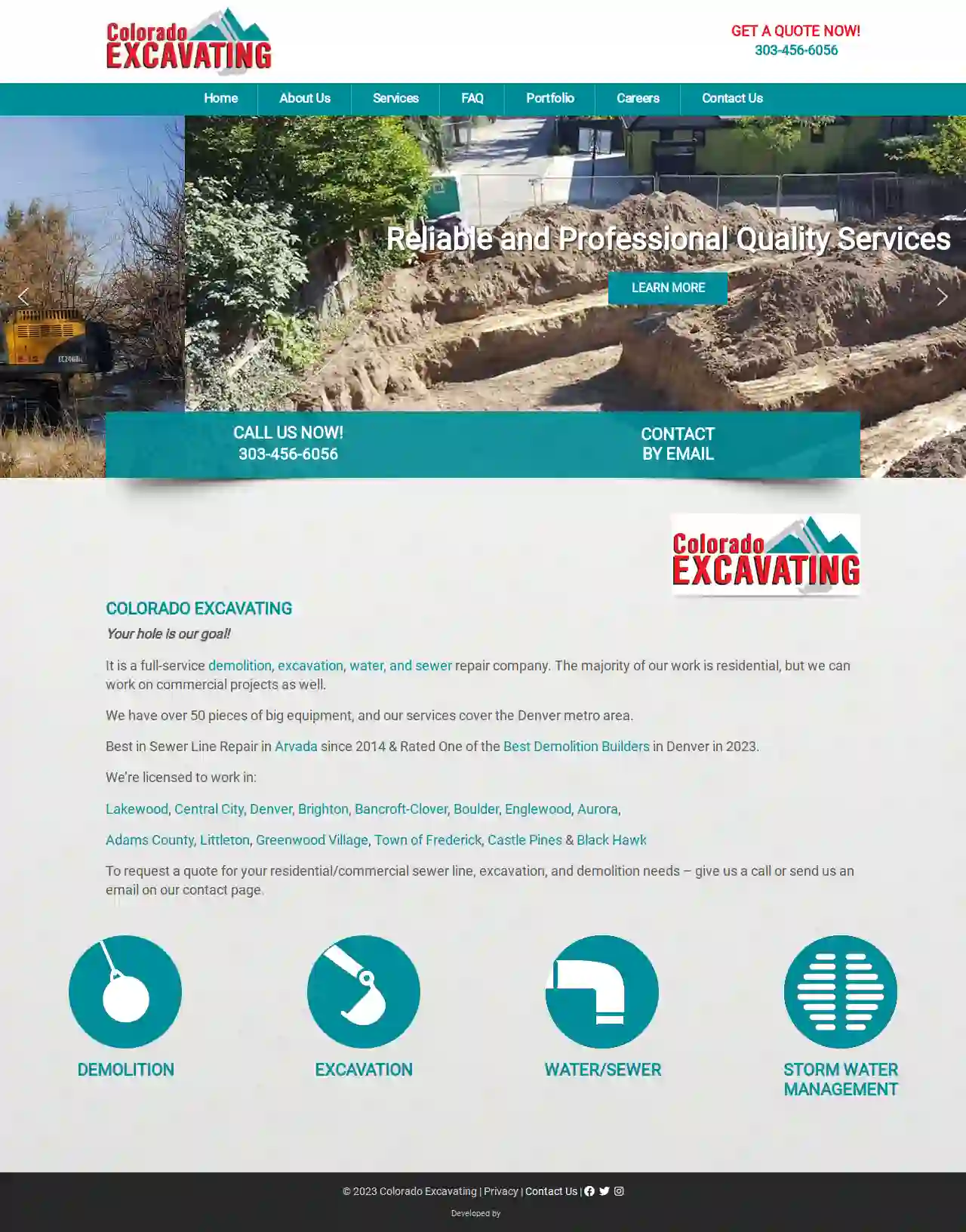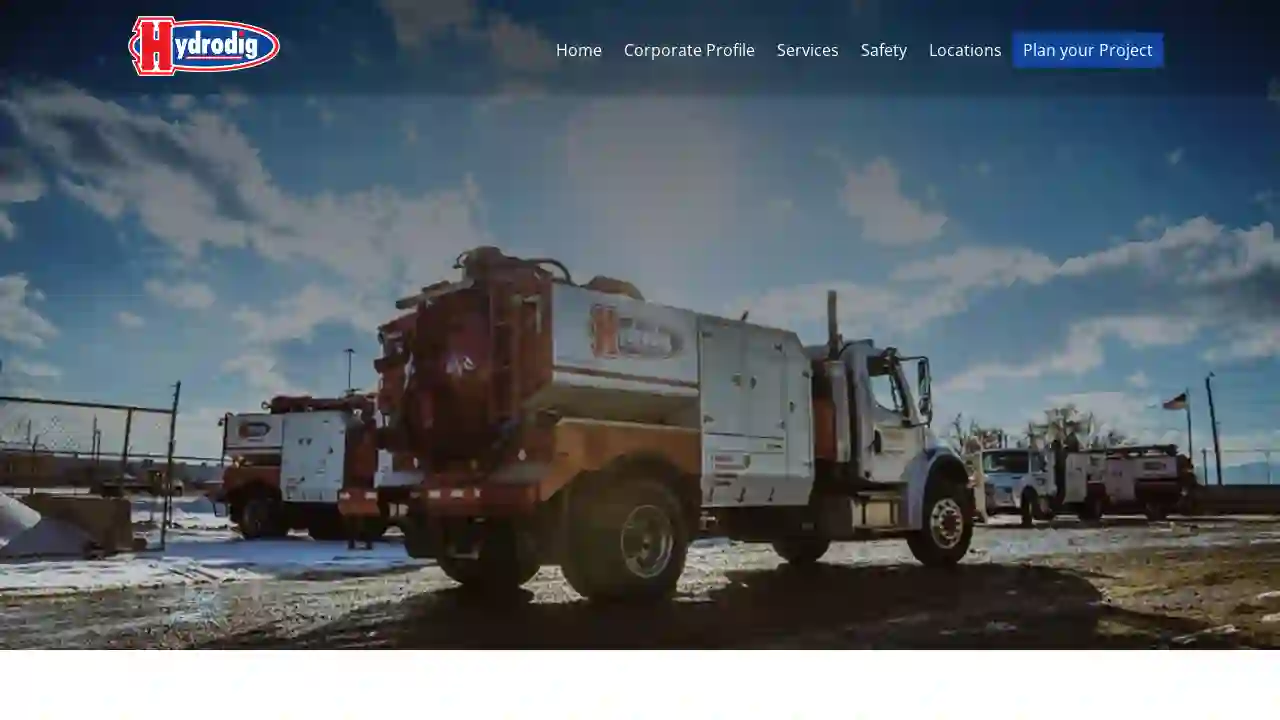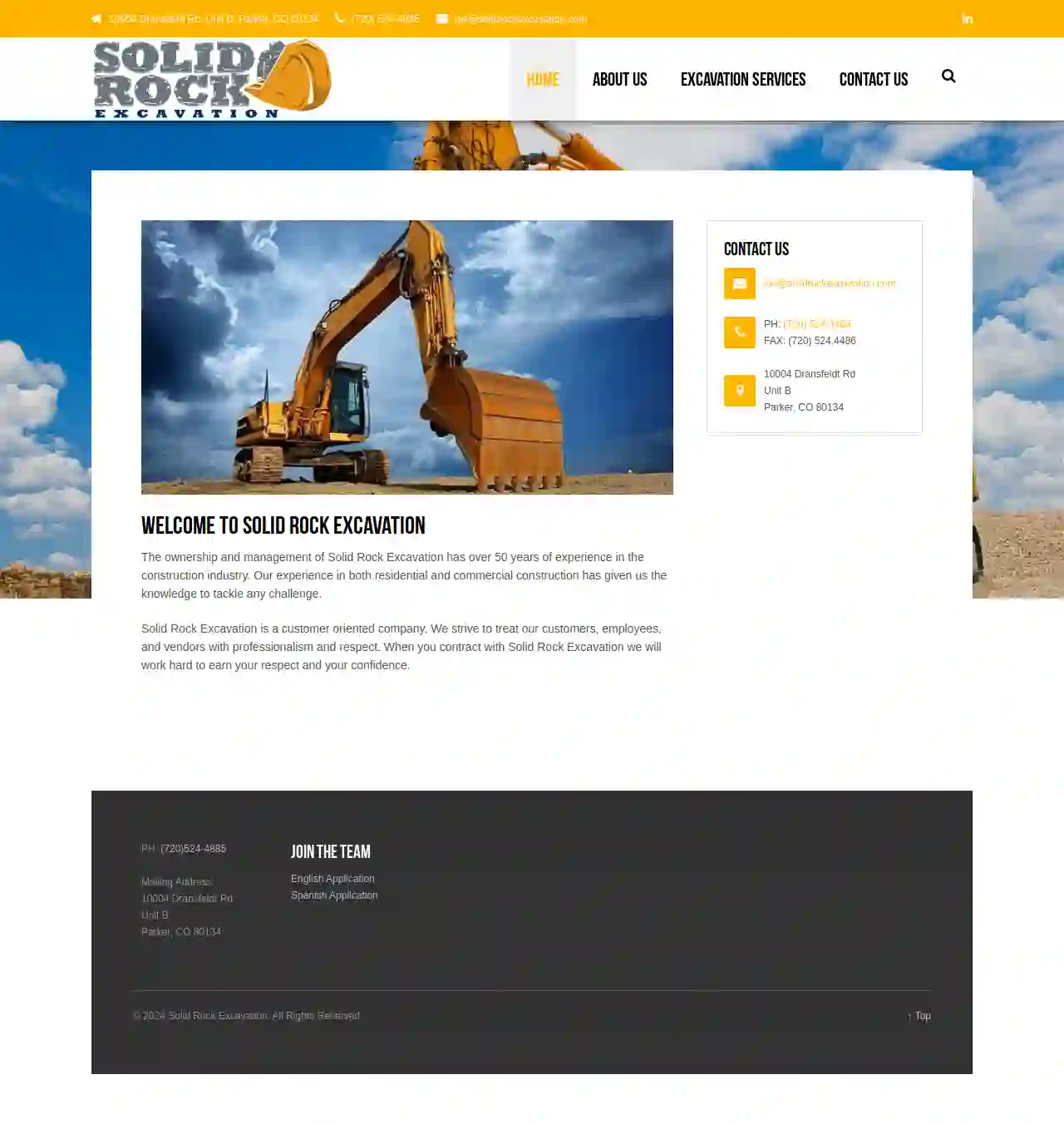Excavation Contractors Denver
Find top Land Excavation in Denver
Receive 3 FREE Excavating Contractors quotes for your project today! Compare profiles, reviews, accreditations, portfolio, etc... and choose the best service.

Colorado Excavating
4.332 reviewsDenver, USColorado Excavating: Your Hole is Our Goal! Colorado Excavating is a full-service demolition, excavation, water, and sewer repair company. We primarily serve residential clients, but we also handle commercial projects. With over 50 pieces of heavy equipment, we provide services throughout the Denver metro area. We've earned a reputation for excellence, being recognized as one of the best demolition builders in Denver in 2023 and the top choice for sewer line repair in Arvada since 2014. Our licensed service areas include: Lakewood Central City Denver Brighton Bancroft-Clover Boulder Englewood Aurora Adams County Littleton Greenwood Village Town of Frederick Castle Pines Black Hawk For all your residential and commercial sewer line, excavation, and demolition needs, contact us for a free quote. You can reach us by phone or email through our contact page.
- Services
- Why Us?
- Gallery
Get Quote
Hydrodig of Denver
4.418 reviews4410 50 St., Bentley, T0C 0J0, USWho is Hydrodig? Incorporated in 1997 and commencing hydro-excavating activities in the spring of 1998, Hydrodig™ has become one of North America’s leading hydrovac companies with Canadian service locations in British Columbia, Alberta, Saskatchewan and Ontario as well as with USA locations in Denver, CO and Dallas, TX. Hydrodig™ undertook initial Western Canada expansion in 2000 with the creation of an owner / operator network of hydrovac service providers. In 2009, Hydrodig™ created its first international entity, Hydrodig™ USA LLC. With locations from Vancouver BC to Ottawa ON and the exposure in the USA, Hydrodig™ can provide safe, efficient, and cost effective solutions to any excavation project with our unique single axle, 4×4 hydro-excavating units. What Is Hydro-Excavation? Numerous terms are associated with this activity: potholing, daylighting, hydro-trenching, hydrovacing and non-destructive excavating to name a few. What is Hydro-Excavation? Simply put, hydro-excavation is the process of utilizing high-pressure water and a powerful vacuum system to excavate. A high pressure water stream loosens the earth and other debris while simultaneously removing and storing the slurry within the onboard vacuum system. This precision orientated activity is predominately used to expose underground infrastructure while determining/proving its precise location OR its non-existence within a proposed excavation area. What is Hydro-Excavation? All in a safe, non-destructive fashion. Examples of underground infrastructure include oil and gas pipelines, water pipelines, sewer pipelines, fiber optic cables, electrical cables, and other utilities.
- Services
- Why Us?
- Gallery
Get Quote- Hi
High Country Excavation, LLC - Landscape Excavator Service & Demolition Excavation Contractor
57 reviewsDenver, US- Services
- Why Us?
Get Quote - UE
UES Construction
4.715 reviewsDenver, US- Services
- Why Us?
Get Quote 
Solid Rock Excavation
54 reviews10004 Dransfeldt Rd, Unit B, Parker, 80134, USSolid Rock Excavation: Building on a Foundation of Experience and Integrity Solid Rock Excavation is a customer-oriented company with a rich history in the construction industry. Founded by Joe Chupp, who boasts over 50 years of experience in both residential and commercial construction, Solid Rock brings a wealth of knowledge and expertise to every project. Joe's dedication to quality, integrity, and honesty is reflected in every aspect of the company's operations. At Solid Rock, we believe in building strong relationships with our customers, employees, and vendors. We strive to treat everyone with professionalism and respect, earning your trust and confidence with every interaction. Our commitment to safety and a positive work environment ensures that our team is well-equipped to handle any challenge. Joe's journey with Solid Rock began in 2009, where he held various roles, including operator, Project Manager, and VP of Operations. His dedication and leadership led him to become the owner of Solid Rock Excavation in 2020. This deep understanding of the industry, coupled with his commitment to excellence, makes Solid Rock Excavation the ideal partner for your construction needs.
- Services
- Why Us?
- Our Team
- Gallery
Get Quote- PB
PBM Excavating Co.
44 reviewsDenver, US- Services
- Why Us?
Get Quote - Be
Bemas Construction
4.512 reviewsDenver, US- Services
- Why Us?
Get Quote - Co
Colorado Excavating, Inc.
52 reviewsDenver, US- Services
- Why Us?
Get Quote - Fr
Front Range Excavating Inc
4.58 reviewsDenver, US- Services
- Why Us?
Get Quote - Go
GoldStar Excavation and Sewer
3.58 reviewsDenver, US- Services
- Why Us?
Get Quote
Over 21,512+ Excavation Contractors onboarded
Our excavation contractors operate in Denver and surrounding areas!
ExcavationHQ has curated and vetted the Best Excavation Companies near Denver. Find a reliable business today.
Frequently Asked Questions About Excavation Contractors
- Trench Collapses: Unstable trench walls can cave in, posing a severe risk to workers. Proper shoring and sloping are crucial safety measures.
- Utility Damage: Striking underground utilities (gas, water, electric) can cause leaks, explosions, or electrocution. Accurate utility locates and careful digging are essential.
- Falling Objects: Materials or equipment falling into excavations can injure workers. Securing work areas and using appropriate safety gear is vital.
- Equipment Accidents: Operating heavy machinery involves risks of rollovers, collisions, or mechanical failures. Trained operators and proper equipment maintenance are critical.
- Environmental Hazards: Excavated soil might contain hazardous materials (asbestos, lead). Proper testing and disposal procedures are necessary.
- Basement Size: The larger the basement, the more excavation is required, increasing the cost.
- Soil Type: Excavating rocky or dense clay soil is generally more expensive than loose soil.
- Accessibility: Difficult-to-access sites might require specialized equipment or more labor, driving up costs.
- Foundation Type: The chosen foundation type (full basement, crawl space, slab) affects excavation needs.
- Underpinning: If underpinning (strengthening existing foundations) is necessary, it significantly increases costs.
- Disposal Fees: Hauling excavated soil to disposal sites adds to the overall expense.
- Project Size and Scope: The larger and more complex the excavation, the higher the cost.
- Soil Type: Different soil types require different equipment and techniques, impacting costs. Rocky or clay-rich soil can be more expensive to excavate than loose soil.
- Accessibility: Difficult-to-access sites might require specialized equipment or additional labor, increasing expenses.
- Disposal Costs: Hauling away excavated material (soil, rocks, etc.) to disposal sites incurs additional fees.
- Permits and Inspections: Depending on local regulations, permits and inspections might be required, adding to the overall cost.
- Mechanical Excavation: Utilizing heavy equipment like excavators, backhoes, bulldozers, and loaders, suitable for most projects.
- Hand Excavation: Using hand tools (shovels, picks) for smaller excavations or delicate work near utilities.
- Blasting: Employing explosives to break up rock or hard materials, typically for large-scale projects.
- Hydro Excavation: Using high-pressure water jets to loosen and remove soil, often used for locating utilities or delicate excavation.
- Vacuum Excavation: Employing a vacuum system to suck up excavated material, suitable for safe excavation near utilities or in confined spaces.
What are the risks associated with excavation?
How much does it cost to excavate a basement?
How much does excavation cost?
What are the different methods of excavation?
What are the risks associated with excavation?
- Trench Collapses: Unstable trench walls can cave in, posing a severe risk to workers. Proper shoring and sloping are crucial safety measures.
- Utility Damage: Striking underground utilities (gas, water, electric) can cause leaks, explosions, or electrocution. Accurate utility locates and careful digging are essential.
- Falling Objects: Materials or equipment falling into excavations can injure workers. Securing work areas and using appropriate safety gear is vital.
- Equipment Accidents: Operating heavy machinery involves risks of rollovers, collisions, or mechanical failures. Trained operators and proper equipment maintenance are critical.
- Environmental Hazards: Excavated soil might contain hazardous materials (asbestos, lead). Proper testing and disposal procedures are necessary.
How much does it cost to excavate a basement?
- Basement Size: The larger the basement, the more excavation is required, increasing the cost.
- Soil Type: Excavating rocky or dense clay soil is generally more expensive than loose soil.
- Accessibility: Difficult-to-access sites might require specialized equipment or more labor, driving up costs.
- Foundation Type: The chosen foundation type (full basement, crawl space, slab) affects excavation needs.
- Underpinning: If underpinning (strengthening existing foundations) is necessary, it significantly increases costs.
- Disposal Fees: Hauling excavated soil to disposal sites adds to the overall expense.
How much does excavation cost?
- Project Size and Scope: The larger and more complex the excavation, the higher the cost.
- Soil Type: Different soil types require different equipment and techniques, impacting costs. Rocky or clay-rich soil can be more expensive to excavate than loose soil.
- Accessibility: Difficult-to-access sites might require specialized equipment or additional labor, increasing expenses.
- Disposal Costs: Hauling away excavated material (soil, rocks, etc.) to disposal sites incurs additional fees.
- Permits and Inspections: Depending on local regulations, permits and inspections might be required, adding to the overall cost.
What are the different methods of excavation?
- Mechanical Excavation: Utilizing heavy equipment like excavators, backhoes, bulldozers, and loaders, suitable for most projects.
- Hand Excavation: Using hand tools (shovels, picks) for smaller excavations or delicate work near utilities.
- Blasting: Employing explosives to break up rock or hard materials, typically for large-scale projects.
- Hydro Excavation: Using high-pressure water jets to loosen and remove soil, often used for locating utilities or delicate excavation.
- Vacuum Excavation: Employing a vacuum system to suck up excavated material, suitable for safe excavation near utilities or in confined spaces.